In Focus This Week
Exit Interviews
The end of 2022 brings the end of numerous careers in elections
By M. Mindy Moretti
Electionline.org
Seven presidential elections, an election on September 11, 2001, recounts, violent threats, changing technology, changing laws, Congressional testimony, and litigation, so much litigation. Oh, and a global pandemic.
The elections officials featured this week have pretty much seen it all. And whether it’s due to term limits or retirement, they are all bidding the elections world adieu as 2022 draws to a close.
These departures are of course in addition to the hundreds of local elections who have left or are planning to soon leave the field.
We reached out to all the outgoing secretaries of state as well as a few other elections folks and these are the interviews of the people we heard from. If we get more responses in the coming days we’ll post those in a future electionline.
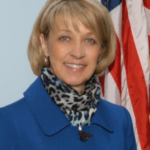 Barbara K. Cegavske, Nevada secretary of state
Barbara K. Cegavske, Nevada secretary of state
 Jim Condos, Vermont secretary of state
Jim Condos, Vermont secretary of state
 Gail Fenumiai, Alaska elections director
Gail Fenumiai, Alaska elections director
 Al Jaeger, North Dakota secretary of state
Al Jaeger, North Dakota secretary of state
 Tim Mattice, The Election Center executive director
Tim Mattice, The Election Center executive director
 John Merrill, Alabama secretary of state
John Merrill, Alabama secretary of state
electionline Holiday Schedule
Holiday Schedule: The Daily News will not publish on December 23, 26, 30 and Jan. 2. From December 27-29 it will publish each day, but by 10am. ElectionlineWeekly will publish as usual on Dec. 29.
electionline Daily News Email
 What’s the best part of waking up? electionline Daily News in your inbox of course so be sure to sign up for your daily dose.
What’s the best part of waking up? electionline Daily News in your inbox of course so be sure to sign up for your daily dose.
Each morning you’ll receive the top headlines of the day, plus a listing of states featured in that day’s news round up.
To sign up, simply visit our site and provide us with your email and you’ll begin receiving the news in your inbox each morning.
We Google so you don’t have to!
Election News This Week
 Greater Acceptance: The statewide mail ballot rejection rate in Texas was 2.7 percent for the general election after being nearly six times that amount for the primaries following changes to mail ballot ID requirements. “That’s obviously a big improvement,” said Sen. Paul Bettencourt, a Houston Republican who helped author the law that instituted the new rule. “I expect that even 2.7 will continue to go down as everyone understands exactly how the system works.” Senate Bill 1 — passed by Texas Republicans in 2021 in the name of election integrity — requires voters to include a state ID number, such as a driver’s license or partial Social Security number when applying for a mail-in ballot and when submitting it. The ID number on the ballot has to match what is on the voter’s registration record, a detail many voters did not recall. Remi Garza, the elections administrator for Cameron County and president of the Texas Association of Elections Administrators, said he was pleased to see the decrease statewide (his county’s rate was 1.34 percent). But at the same time, he said he still sees room for improvement. “I think it’s a great indication of the hard work that election offices across the state are doing,” Garza said. “I’m glad the information that has been distributed by everyone has had an impact on bringing the rejection rate down, but obviously it’s still way too high. We need to work harder to communicate with the vote-by-mail applicants on how to assure their vote is going to be counted.”
Greater Acceptance: The statewide mail ballot rejection rate in Texas was 2.7 percent for the general election after being nearly six times that amount for the primaries following changes to mail ballot ID requirements. “That’s obviously a big improvement,” said Sen. Paul Bettencourt, a Houston Republican who helped author the law that instituted the new rule. “I expect that even 2.7 will continue to go down as everyone understands exactly how the system works.” Senate Bill 1 — passed by Texas Republicans in 2021 in the name of election integrity — requires voters to include a state ID number, such as a driver’s license or partial Social Security number when applying for a mail-in ballot and when submitting it. The ID number on the ballot has to match what is on the voter’s registration record, a detail many voters did not recall. Remi Garza, the elections administrator for Cameron County and president of the Texas Association of Elections Administrators, said he was pleased to see the decrease statewide (his county’s rate was 1.34 percent). But at the same time, he said he still sees room for improvement. “I think it’s a great indication of the hard work that election offices across the state are doing,” Garza said. “I’m glad the information that has been distributed by everyone has had an impact on bringing the rejection rate down, but obviously it’s still way too high. We need to work harder to communicate with the vote-by-mail applicants on how to assure their vote is going to be counted.”
 Lingering Issues: Federal observers documented repeated issues with Alaska Native language support during the Nov. 8 general election, months after flagging concerns with election protocols in August. During the August special U.S. House and primary elections, the Department of Justice sent federal observers to some predominantly Alaska Native polling stations to assess language accommodations for Yup’ik speakers. Reports identified what appeared to be violations of the law at some polling locations that are required to provide language assistance. The Justice Department again deployed federal observers during the Nov. 8 general election to six jurisdictions where accommodations for Yup’ik speakers are required. Reports showed lingering problems, including poll workers who did not receive mandatory language assistance training and a lack of translated election materials. Tiffany Montemayor, a spokeswoman for the division, said the division is reviewing the federal observer reports and “makes every effort to comply” with the Voting Rights Act and a 2015 court order, but noted that the agency has encountered challenges recruiting bilingual poll workers. “It is frequently difficult to recruit bilingual workers, particularly in places where the residents have informed the division that they do not need language assistance. But the division is committed to providing language assistance and it believes it has complied with the stipulated order and will continue to comply with the Voting Rights Act going forward,” Montemayor said in a statement.
Lingering Issues: Federal observers documented repeated issues with Alaska Native language support during the Nov. 8 general election, months after flagging concerns with election protocols in August. During the August special U.S. House and primary elections, the Department of Justice sent federal observers to some predominantly Alaska Native polling stations to assess language accommodations for Yup’ik speakers. Reports identified what appeared to be violations of the law at some polling locations that are required to provide language assistance. The Justice Department again deployed federal observers during the Nov. 8 general election to six jurisdictions where accommodations for Yup’ik speakers are required. Reports showed lingering problems, including poll workers who did not receive mandatory language assistance training and a lack of translated election materials. Tiffany Montemayor, a spokeswoman for the division, said the division is reviewing the federal observer reports and “makes every effort to comply” with the Voting Rights Act and a 2015 court order, but noted that the agency has encountered challenges recruiting bilingual poll workers. “It is frequently difficult to recruit bilingual workers, particularly in places where the residents have informed the division that they do not need language assistance. But the division is committed to providing language assistance and it believes it has complied with the stipulated order and will continue to comply with the Voting Rights Act going forward,” Montemayor said in a statement.
 Wither TikTok: Wyoming Gov. Mark Gordon and Louisiana Secretary of State Kyla Ardoin have banned TikTok from state electronic devices. Shortly before Gordon made his announcement, Secretary of State-elect Chuck Gray announced his own plan to ban TikTok on all state-owned government devices within the Secretary of State’s Office upon being sworn in next month. In Louisiana, the ban affects only 11 cellphones, Secretary of State spokesman John Tobler said, but Ardoin has also blocked the app from the department’s WiFi networks and computers. “As Secretary of State, I have the serious responsibility of protecting voters’ personally identifiable information, which is why I have taken the step of banning the use of TikTok on all devices owned or leased by my agency,” Ardoin wrote in a letter to Edwards. “I wholeheartedly believe that doing so on a statewide level would protect our data and reaffirm our commitment to privacy protections for our constituents. Therefore, I urge you to issue a directive banning the use of TikTok on our state government’s devices with immediate effect.”
Wither TikTok: Wyoming Gov. Mark Gordon and Louisiana Secretary of State Kyla Ardoin have banned TikTok from state electronic devices. Shortly before Gordon made his announcement, Secretary of State-elect Chuck Gray announced his own plan to ban TikTok on all state-owned government devices within the Secretary of State’s Office upon being sworn in next month. In Louisiana, the ban affects only 11 cellphones, Secretary of State spokesman John Tobler said, but Ardoin has also blocked the app from the department’s WiFi networks and computers. “As Secretary of State, I have the serious responsibility of protecting voters’ personally identifiable information, which is why I have taken the step of banning the use of TikTok on all devices owned or leased by my agency,” Ardoin wrote in a letter to Edwards. “I wholeheartedly believe that doing so on a statewide level would protect our data and reaffirm our commitment to privacy protections for our constituents. Therefore, I urge you to issue a directive banning the use of TikTok on our state government’s devices with immediate effect.”
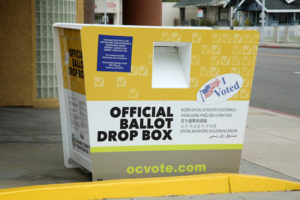 Congratulations: The Orange County, California Registrar of Voters has been awarded the inaugural Award for Outstanding Service from Disability Rights California. The nonprofit said the award was presented for “substantial efforts’ in helping a voter with special needs cast their ballot in November. The group specifically highlighted the work of staffers Roxana Castro, Imelda Carrillo and Justin Berardino in aiding a voter. “Our staff is committed to ensuring that all voters in Orange County have equal access to the election process,” Registrar Bob Page said. “We are honored to have been presented with this award.” According to the Orange County Register, one individual thought she had successfully updated her voter registration online, but did not realize until the evening before Election Day that she had skipped a step. The person did not have the necessary technology at home to properly complete her voter registration, and her disability prevented her from leaving her house without assistance, which she lacked at the time. Elections officials partnered with Disability Rights California to send someone to the person’s home and, with real-time phone assistance, helped her complete her voter registration and submit her ballot — on Election Day. “Without the commitment, flexibility and creative thinking of these officials in the Orange County elections office, this voter would not have been able to vote in her new county of residence,” Disability Rights California said in announcing the award.
Congratulations: The Orange County, California Registrar of Voters has been awarded the inaugural Award for Outstanding Service from Disability Rights California. The nonprofit said the award was presented for “substantial efforts’ in helping a voter with special needs cast their ballot in November. The group specifically highlighted the work of staffers Roxana Castro, Imelda Carrillo and Justin Berardino in aiding a voter. “Our staff is committed to ensuring that all voters in Orange County have equal access to the election process,” Registrar Bob Page said. “We are honored to have been presented with this award.” According to the Orange County Register, one individual thought she had successfully updated her voter registration online, but did not realize until the evening before Election Day that she had skipped a step. The person did not have the necessary technology at home to properly complete her voter registration, and her disability prevented her from leaving her house without assistance, which she lacked at the time. Elections officials partnered with Disability Rights California to send someone to the person’s home and, with real-time phone assistance, helped her complete her voter registration and submit her ballot — on Election Day. “Without the commitment, flexibility and creative thinking of these officials in the Orange County elections office, this voter would not have been able to vote in her new county of residence,” Disability Rights California said in announcing the award.
Personnel News: Carons City, Nevada Clerk-Recorder Aubrey Rowlatt did not seek re-election to her position. Nic Smith has resigned from the Erie County, Ohio board of elections. Anthony Vega has begun his term as Lake County, Illinois clerk. Allyson Bettis has been appointed Southfield, Michigan city clerk. Teller County, Colorado Clerk & Recorder Krystal Brown has stepped down after 11 years on the job. Cache County, Utah Clerk and Auditor Jess Bradfield is resigning. Rachel Bull is the new Arundel, Maine clerk. Kea Warne has been let go from the South Dakota secretary of state’s office after 24 years on the job, serving under five different secretaries. Kentucky Rep. Buddy Wheatly (D-Covington) has announced his candidacy for secretary of state.
Legislative Updates
 District of Columbia: Councilmember Brooke Pinto (D-Ward 2) said she will not pursue legislation again next year to introduce mobile voting to the District after a bill she introduced this session went nowhere. “Since introducing the bill, I have had many more conversations with residents and experts and my staff and I have read additional reporting on the issue. At this time, mobile voting is not ripe to move forward as additional security protections are likely needed to be considered in the event we do adopt a mobile voting option in the future,” she wrote in an email. Pinto introduced the mobile voting bill in February, building off a campaign Bradley Tusk launched last year to push mobile voting in jurisdictions across the country — starting with the District. Tusk and Pinto said that mobile voting would increase turnout and democratic engagement by making it easier for residents to vote, especially Black and Latino voters for whom turnout rates tend to lag behind white voters in the city. The bill quickly raised alarms among many cybersecurity experts, who said there are too many remaining risks to pursue mobile voting at scale at this point.
District of Columbia: Councilmember Brooke Pinto (D-Ward 2) said she will not pursue legislation again next year to introduce mobile voting to the District after a bill she introduced this session went nowhere. “Since introducing the bill, I have had many more conversations with residents and experts and my staff and I have read additional reporting on the issue. At this time, mobile voting is not ripe to move forward as additional security protections are likely needed to be considered in the event we do adopt a mobile voting option in the future,” she wrote in an email. Pinto introduced the mobile voting bill in February, building off a campaign Bradley Tusk launched last year to push mobile voting in jurisdictions across the country — starting with the District. Tusk and Pinto said that mobile voting would increase turnout and democratic engagement by making it easier for residents to vote, especially Black and Latino voters for whom turnout rates tend to lag behind white voters in the city. The bill quickly raised alarms among many cybersecurity experts, who said there are too many remaining risks to pursue mobile voting at scale at this point.
 Alpena, Michigan: The Alpena Municipal Council voted four-to-one this week to change when the city holds council elections. The move adds one year to the council members’ current terms and impacts the city library and Dial-a-Ride property taxes. Moving the council elections from odd-numbered years to even-numbered years allows the city to piggyback on state and federal elections held in even-numbered years and save money. City Clerk Anna Soik said in her report to the council that the last city election in November 2021 cost the city $10,751. That amount could increase because of the increased costs of supplies and labor because of the growing popularity of no-reason absentee voting, Soik said. She said that, when the early voting process approved by voters in November gets up and running, that could also cause more cost.
Alpena, Michigan: The Alpena Municipal Council voted four-to-one this week to change when the city holds council elections. The move adds one year to the council members’ current terms and impacts the city library and Dial-a-Ride property taxes. Moving the council elections from odd-numbered years to even-numbered years allows the city to piggyback on state and federal elections held in even-numbered years and save money. City Clerk Anna Soik said in her report to the council that the last city election in November 2021 cost the city $10,751. That amount could increase because of the increased costs of supplies and labor because of the growing popularity of no-reason absentee voting, Soik said. She said that, when the early voting process approved by voters in November gets up and running, that could also cause more cost.
 Texas: Legislators representing Harris County have pre-filed several elections-related bills. SB 126, filed by Sen. Carol Alvarado, D-Houston and HB 943, filed by Rep. Harold Dutton Jr., D-Houston would allow those with unexpired driver’s licenses or personal identification cards to register to vote online. SB 220, filed by Sen. Paul Bettencourt, R-Houston would create the position of a state election marshal, appointed by the secretary of state, who would then appoint one election marshal per 1 million people in a given Department of Public Safety Region to investigate violations of the Texas Election Code. SB 260, filed by Sen. Lois Kolkhorst, R-Brenham would require the voter registrar to request written confirmation of a voter’s residence address if it is a commercial P.O. box and the voter has not voted in any election during the previous 25 months, or if the registrar believes a voter’s current residence is different than what is recorded. HB 246, filed by Rep. Valoree Swanson, R-Spring would create a pilot program of video recording at ballot counting activity in at least 20% of voting precincts in six counties chosen by the secretary of state, two of which with populations greater than 500,000 people. HB 355, filed by Rep. Senfronia Thompson, D-Houston would allow those convicted of felonies who are not currently incarcerated for those offenses to vote without needing to have completed parole, supervision or probation. HB 944, filed by Rep. Harold Dutton Jr., D-Houston would mandate that a county with a population of 3.3 million or more serve as a polling place, in effect creating a polling place at the Harris County jail.
Texas: Legislators representing Harris County have pre-filed several elections-related bills. SB 126, filed by Sen. Carol Alvarado, D-Houston and HB 943, filed by Rep. Harold Dutton Jr., D-Houston would allow those with unexpired driver’s licenses or personal identification cards to register to vote online. SB 220, filed by Sen. Paul Bettencourt, R-Houston would create the position of a state election marshal, appointed by the secretary of state, who would then appoint one election marshal per 1 million people in a given Department of Public Safety Region to investigate violations of the Texas Election Code. SB 260, filed by Sen. Lois Kolkhorst, R-Brenham would require the voter registrar to request written confirmation of a voter’s residence address if it is a commercial P.O. box and the voter has not voted in any election during the previous 25 months, or if the registrar believes a voter’s current residence is different than what is recorded. HB 246, filed by Rep. Valoree Swanson, R-Spring would create a pilot program of video recording at ballot counting activity in at least 20% of voting precincts in six counties chosen by the secretary of state, two of which with populations greater than 500,000 people. HB 355, filed by Rep. Senfronia Thompson, D-Houston would allow those convicted of felonies who are not currently incarcerated for those offenses to vote without needing to have completed parole, supervision or probation. HB 944, filed by Rep. Harold Dutton Jr., D-Houston would mandate that a county with a population of 3.3 million or more serve as a polling place, in effect creating a polling place at the Harris County jail.
 Arlington County, Virginia: The Arlington County Board has officially approved a trial run of ranked choice voting in a local primary election next year, becoming the first locality in Virginia to adopt the voting method. The new election system will be in place for the primary elections for local county board seats in June. It will not yet apply to any other election contests, though county officials have also considered plans for potentially implementing it again in next year’s general election in November. The Board approved the measure unanimously, following a public hearing in November where members indicated that they would endorse the plan. “Ranked Choice Voting has been shown to make the electoral process more representative and participatory in communities across the county, as well as resulting in candidates who build consensus and a more diverse slate of elected officials,” said Board Chair Katie Cristol, who has led the county’s consideration of the elections method, in November. “I’m glad that Arlington voters have a chance to utilize this program next year.”
Arlington County, Virginia: The Arlington County Board has officially approved a trial run of ranked choice voting in a local primary election next year, becoming the first locality in Virginia to adopt the voting method. The new election system will be in place for the primary elections for local county board seats in June. It will not yet apply to any other election contests, though county officials have also considered plans for potentially implementing it again in next year’s general election in November. The Board approved the measure unanimously, following a public hearing in November where members indicated that they would endorse the plan. “Ranked Choice Voting has been shown to make the electoral process more representative and participatory in communities across the county, as well as resulting in candidates who build consensus and a more diverse slate of elected officials,” said Board Chair Katie Cristol, who has led the county’s consideration of the elections method, in November. “I’m glad that Arlington voters have a chance to utilize this program next year.”
Legal Updates
 Arizona: Maricopa County Superior Court Judge Melissa Julian quashed a bid by Mark Finchem to overturn his loss to Adrian Fontes for secretary of state, saying he presented no evidence to support such a radical move. Julian said she may order Finchem and his attorneys to pay the legal fees for Fontes and Secretary of State Katie Hobbs who had also been sued. In a 13-page order, Julian said the Republican contender failed to present any evidence that showed the outcome of the race — and his loss by more than 120,000 votes — was in any way affected by misconduct or fraud by anyone. “Honest mistakes or mere omissions on the part of election officials, or irregularities in director matters, even though gross, if not fraudulent, will not void an election, unless they affect the result, or at least render it uncertain,” Julian said. “A valid election contest may not rely upon public rumor or upon evidence about which a mere theory, suspicion, or conjecture may be maintained.” And here, the judge said, there is not even the evidence of mistakes. “Mr. Finchem does not allege that any of the votes cast were actually illegal,” she said. Nor, said Julian, did he present evidence that ballots were cast by people ineligible to vote. “What Mr. Finchem argues is a case of missing votes,” the judge said. That includes claims that people were disenfranchised because they were frustrated due to the malfunction of tallying machines at some Maricopa County vote centers and delays and left without voting, leading to “suspicions that some votes may not have been counted.” And that, said the judge, is insufficient to void an election.
Arizona: Maricopa County Superior Court Judge Melissa Julian quashed a bid by Mark Finchem to overturn his loss to Adrian Fontes for secretary of state, saying he presented no evidence to support such a radical move. Julian said she may order Finchem and his attorneys to pay the legal fees for Fontes and Secretary of State Katie Hobbs who had also been sued. In a 13-page order, Julian said the Republican contender failed to present any evidence that showed the outcome of the race — and his loss by more than 120,000 votes — was in any way affected by misconduct or fraud by anyone. “Honest mistakes or mere omissions on the part of election officials, or irregularities in director matters, even though gross, if not fraudulent, will not void an election, unless they affect the result, or at least render it uncertain,” Julian said. “A valid election contest may not rely upon public rumor or upon evidence about which a mere theory, suspicion, or conjecture may be maintained.” And here, the judge said, there is not even the evidence of mistakes. “Mr. Finchem does not allege that any of the votes cast were actually illegal,” she said. Nor, said Julian, did he present evidence that ballots were cast by people ineligible to vote. “What Mr. Finchem argues is a case of missing votes,” the judge said. That includes claims that people were disenfranchised because they were frustrated due to the malfunction of tallying machines at some Maricopa County vote centers and delays and left without voting, leading to “suspicions that some votes may not have been counted.” And that, said the judge, is insufficient to void an election.
At hearing this week, lawyers for losing attorney general candidate Abe Hamadeh, who lost by 511 votes, argue that what type of ink a voter used may be at heart of why there were about 50,000 undervotes in the race. We’re not saying the machine cannot read blue ink,” attorney Tim La Sota told Mohave County Superior Court Judge Lee Jantzen. “We’re saying it is less able to read blue ink,” he continued. “And in a race of this small of a margin, that could make the difference.” La Sota said allowing him to examine ballots from Maricopa, Pima and Navajo counties where there was no choice recorded in the race for attorney general will enable him to show if these people actually wanted to vote in that race — and, more to the point, vote for the Republican contender and help him make up the deficit of 511 votes that he would need to defeat Mayes. But Emily Craiger, representing Maricopa County, said there are a couple of problems with the theory. She said it starts with the fact that the instructions given to voters specifically tell them what kinds of ink they can use that the tabulators can read. Beyond that, Craiger said the explanation that the use of certain inks or pens affected only the race between Hamadeh and Mayes makes no sense. Mohave County Superior Court Judge Lee Jantzen ruled this week that Hamadeh is entitled to try to prove that some people legally entitled to vote did not get to cast a ballot on Election Day because of issues in Maricopa County. That has to do with whether people who left one voting center because of printer and tabulator problems were illegally denied the right to vote when they arrived at a second one. Jantzen also said Hamadeh can pursue allegations that some ballots which could not be read by tabulators were improperly duplicated by election officials who are required to prepare a new — and readable — ballot. Hamadeh requested an emergency hearing in Mohave Superior Court on Wednesday after failing to reach agreement on a ballot inspection in three counties. That ballot inspection was supposed to happen Dec. 21. Former Arizona Secretary of State Ken Bennett, a Republican, sent a declaration joining Hamadeh’s side. The hearing is set to take place at press time. The ballot inspection is provided for under election contest statutes and the trial for Hamadeh’s challenge begins Dec. 23.
Maricopa County Superior Court Judge Peter Thompson declined to dismiss Kari Lake’s election challenge after oral arguments by attorneys, giving her a chance to try to prove her claims of misconduct by election officials. Thompson did toss eight of the claims in Lake’s lawsuit, but allowed two to remain that alleged an intentional plot by officials to manipulate the election in favor of Lake’s Democratic opponent, Secretary of State Katie Hobbs. In two separate orders, he ruled that a two-day trial will begin Dec. 21, and that Hobbs and County Recorder Stephen Richer would be required to testify as Lake wished. Lake has “alleged intentional misconduct sufficient to affect the outcome of the election and thus has stated an issue of fact that requires going beyond the pleadings,” the ruling stated. It continued that Lake must show at trial that the county’s printer malfunctions were intentionally rigged to affect the election results, and that the actions “did actually affect the outcome.” Thompson didn’t immediately set the time for the trial, but ordered the attorneys for Lake and defendants including Hobbs and county officials to submit a list with the anticipated time required for the proceedings no later than 12 p.m., Dec. 20.
 Arkansas: The Pulaski County Election Commission tonight formally approved settlement of a civil rights lawsuit by Barry Haas, who then-Republican Chair Kristi Stahr refused to allow to be an election worker in 2021, despite years of service. The commission had expressed an intention to settle the case earlier, pending final details. There’s no admission of liability. The suit will pend for 90 days to insure the agreement is enforced. The only monetary payment is an agreement to use the county’s insurance carrier to pay $402.60 in court costs. No attorney fees or monetary damages were sought.
Arkansas: The Pulaski County Election Commission tonight formally approved settlement of a civil rights lawsuit by Barry Haas, who then-Republican Chair Kristi Stahr refused to allow to be an election worker in 2021, despite years of service. The commission had expressed an intention to settle the case earlier, pending final details. There’s no admission of liability. The suit will pend for 90 days to insure the agreement is enforced. The only monetary payment is an agreement to use the county’s insurance carrier to pay $402.60 in court costs. No attorney fees or monetary damages were sought.
A group called Arkansas Voter Integrity Inc., led by Conrad Reynolds, who lost a Republican primary race against U.S. Rep. French Hill, has filed a lawsuit challenging the legality of Arkansas voting machinery. The Pulaski Circuit Court lawsuit names Secretary of State John Thurston, the state Board of Election Commissioners and Election Systems and Software, which provides voting machinery in all 75 counties. The suit contends the machinery violates state and federal law that requires that voters be allowed to verify their ballots before they are counted. The group’s suit seeks an injunction to bar use of ESS machinery — voting machines that produce a ballot and the electronic tabulators — in future elections.
 Delaware: The Delaware Supreme Court has issued an opinion that universal mail-in voting and same-day registration violate the constitution. This past summer, the Delaware General Assembly passed a law allowing universal mail-in voting and same-day voter registration. The Public Interest Legal Foundation then filed a lawsuit against the law, alleging that it violated Delaware’s Constitution. In the opinion, the Court states that Article V, Section 4A of the Delaware Constitution only allows for absentee voting in certain enumerated circumstances. In addition, the Court writes that the state constitution establishes a deadline for voter registration. The full written opinion can be found here.
Delaware: The Delaware Supreme Court has issued an opinion that universal mail-in voting and same-day registration violate the constitution. This past summer, the Delaware General Assembly passed a law allowing universal mail-in voting and same-day voter registration. The Public Interest Legal Foundation then filed a lawsuit against the law, alleging that it violated Delaware’s Constitution. In the opinion, the Court states that Article V, Section 4A of the Delaware Constitution only allows for absentee voting in certain enumerated circumstances. In addition, the Court writes that the state constitution establishes a deadline for voter registration. The full written opinion can be found here.
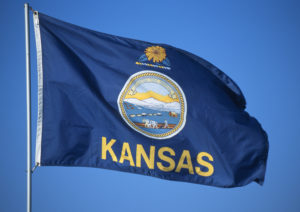 Kansas: A coalition of voting rights groups says Dodge City’s election system is designed to prevent the community’s Latino population from holding office on the city commission. In a complaint filed in federal court, the coalition argues the “at-large” election system is unconstitutional and a violation of the Voting Rights Act of 1965. The lawsuit was filed by the UCLA Voting Rights Project, American Civil Liberties Union of Kansas, the national ACLU, and New York City-based law firm Cleary Gottlieb Steen and Hamilton. The city uses an at-large election system, in which all city residents can vote for each of the five seats on the city commission. About 65% of Dodge City’s residents are Latino. But the election system, plaintiffs argue, allows the city’s white voting bloc to prevent the Latino population from electing candidates. No Latino candidate has been elected to the commission this century. The coalition says a map that divides the city into five voting districts would give the Latino population the opportunity to hold at least two seats on the commission.
Kansas: A coalition of voting rights groups says Dodge City’s election system is designed to prevent the community’s Latino population from holding office on the city commission. In a complaint filed in federal court, the coalition argues the “at-large” election system is unconstitutional and a violation of the Voting Rights Act of 1965. The lawsuit was filed by the UCLA Voting Rights Project, American Civil Liberties Union of Kansas, the national ACLU, and New York City-based law firm Cleary Gottlieb Steen and Hamilton. The city uses an at-large election system, in which all city residents can vote for each of the five seats on the city commission. About 65% of Dodge City’s residents are Latino. But the election system, plaintiffs argue, allows the city’s white voting bloc to prevent the Latino population from electing candidates. No Latino candidate has been elected to the commission this century. The coalition says a map that divides the city into five voting districts would give the Latino population the opportunity to hold at least two seats on the commission.
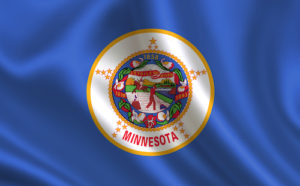 Minnesota: The Olmsted County Attorney’s Office declined to charge two Olmsted County election judges who were investigated by the Rochester Police Department with any crimes, following a lengthy investigation. Olmsted County Attorney Mark Ostrem said Thursday that his office decided not to charge former Rochester election judges Margaret Sherman and Frederick Nolting with breaking election law because “proof beyond a reasonable doubt is a very high standard and the evidence would not meet that burden.” According to an Oct. 26 Rochester police incident report, former Byron City Administrator Mary Kathleen Blair-Hoeft reported two possible election law complaints to Rochester police on Oct. 24, sometime after the August primary election. According to Ostrem, Sherman was suspected of running a report off of a voting machine and taking a copy home. She was investigated for allegedly violating Minnesota Statute 204C.06, Subd. 4a, which prohibits removing election materials, files, and registers from polling places, except as authorized by law. Ostrem said Nolting was suspected of attempting to “break into the secure WiFi that the elections machines were connected to.” Nolting was investigated for alleged violation of Minnesota Statute 204C.41, which concerns felonious conduct by election officers who fail to “safely keep and product ballots on election day…” or are “guilty of fraud, corruption, partiality or misbehavior in conducting or aiding in the conduct of an election.”
Minnesota: The Olmsted County Attorney’s Office declined to charge two Olmsted County election judges who were investigated by the Rochester Police Department with any crimes, following a lengthy investigation. Olmsted County Attorney Mark Ostrem said Thursday that his office decided not to charge former Rochester election judges Margaret Sherman and Frederick Nolting with breaking election law because “proof beyond a reasonable doubt is a very high standard and the evidence would not meet that burden.” According to an Oct. 26 Rochester police incident report, former Byron City Administrator Mary Kathleen Blair-Hoeft reported two possible election law complaints to Rochester police on Oct. 24, sometime after the August primary election. According to Ostrem, Sherman was suspected of running a report off of a voting machine and taking a copy home. She was investigated for allegedly violating Minnesota Statute 204C.06, Subd. 4a, which prohibits removing election materials, files, and registers from polling places, except as authorized by law. Ostrem said Nolting was suspected of attempting to “break into the secure WiFi that the elections machines were connected to.” Nolting was investigated for alleged violation of Minnesota Statute 204C.41, which concerns felonious conduct by election officers who fail to “safely keep and product ballots on election day…” or are “guilty of fraud, corruption, partiality or misbehavior in conducting or aiding in the conduct of an election.”
 Mississippi: A special appointed judge has denied a motion to dismiss the case against Hinds County District 2 Election Commissioner Toni Johnson, which was filed earlier this year on grounds that the state auditor did not have jurisdiction to investigate her. Early this week, Justice Jess Dickinson said the request was “not well taken and due to be denied” after “having heard argument and being fully advised on the premises.” Johnson is facing 26 felony counts in connection with embezzling hundreds of thousands of dollars in grant money the county received to keep election workers and voters safe during the 2020 general election. The majority of the funds came to the county through the Center for Tech and Civic Life, which is funded in large part by Facebook and Meta founder Mark Zuckerberg. Hinds County received more than $1.8 million in election grant dollars from CTCL and the Schwarzenegger Institute. The Hinds County District Attorney’s Office alleges that Johnson used her position on the Election Commission to award hundreds of thousands of dollars in contracts to friends.
Mississippi: A special appointed judge has denied a motion to dismiss the case against Hinds County District 2 Election Commissioner Toni Johnson, which was filed earlier this year on grounds that the state auditor did not have jurisdiction to investigate her. Early this week, Justice Jess Dickinson said the request was “not well taken and due to be denied” after “having heard argument and being fully advised on the premises.” Johnson is facing 26 felony counts in connection with embezzling hundreds of thousands of dollars in grant money the county received to keep election workers and voters safe during the 2020 general election. The majority of the funds came to the county through the Center for Tech and Civic Life, which is funded in large part by Facebook and Meta founder Mark Zuckerberg. Hinds County received more than $1.8 million in election grant dollars from CTCL and the Schwarzenegger Institute. The Hinds County District Attorney’s Office alleges that Johnson used her position on the Election Commission to award hundreds of thousands of dollars in contracts to friends.
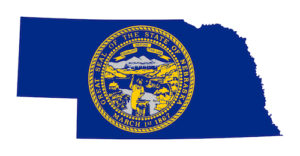 Nebraska: Lancaster County District Court Judge Kevin McManaman dismissed a legal challenge by Lincoln legislative candidate Russ Barger that sought to force the state to hand-recount his 223-vote loss. McManaman’s ruled against Barger’s lawsuit on a technicality and on its merits. The judge said his court lacked the jurisdiction to consider the lawsuit because Barger’s original digital copy of the filing lacked the proper electronic verification of signatures required by state law. Jennifer Huxoll of the Nebraska Attorney General’s Office, arguing on behalf of the state, contended that McManaman couldn’t consider Barger’s filing because of the missing digital notarization. The judge agreed, writing that the “law of Nebraska is clear that the filing of a motion and affidavit for a verified petition is a jurisdictional requirement” before weighing in on a requested writ of mandamus. The judge also sided with Secretary of State Bob Evnen’s office and Attorney General Doug Peterson’s office that state law left the decision on the recount method to the secretary. McManaman, in his ruling, found “no merit” to the argument put forward by Barger’s lawyer, David Begley, that separate sections of state law and historical practice hint at a preference toward hand recounts. “The statute simply does not say what Relator claims, but it does say that the Secretary of State shall supervise recounts,” the judge ruled.
Nebraska: Lancaster County District Court Judge Kevin McManaman dismissed a legal challenge by Lincoln legislative candidate Russ Barger that sought to force the state to hand-recount his 223-vote loss. McManaman’s ruled against Barger’s lawsuit on a technicality and on its merits. The judge said his court lacked the jurisdiction to consider the lawsuit because Barger’s original digital copy of the filing lacked the proper electronic verification of signatures required by state law. Jennifer Huxoll of the Nebraska Attorney General’s Office, arguing on behalf of the state, contended that McManaman couldn’t consider Barger’s filing because of the missing digital notarization. The judge agreed, writing that the “law of Nebraska is clear that the filing of a motion and affidavit for a verified petition is a jurisdictional requirement” before weighing in on a requested writ of mandamus. The judge also sided with Secretary of State Bob Evnen’s office and Attorney General Doug Peterson’s office that state law left the decision on the recount method to the secretary. McManaman, in his ruling, found “no merit” to the argument put forward by Barger’s lawyer, David Begley, that separate sections of state law and historical practice hint at a preference toward hand recounts. “The statute simply does not say what Relator claims, but it does say that the Secretary of State shall supervise recounts,” the judge ruled.
 North Carolina: Following a 4-3 decision last week, a 2018 law requiring photo identification to vote in North Carolina remains invalidated after a narrow majority on the state Supreme Court agreed with a lower court decision that struck it down. The court’s Democratic justices said they saw no reason to disturb the 2021 ruling that voided the photo ID law. The lower court said the law violated the equal protection clause of the state constitution because it was tainted by racial bias and designed to help Republicans retain their grip on the General Assembly. “We hold that the three-judge panel’s findings of fact are supported by competent evidence showing that the statute was motivated by a racially discriminatory purpose,” Associate Justice Anita Earls wrote in the majority opinion. “The provisions enacted … were formulated with an impermissible intent to discriminate against African American voters in violation of the North Carolina Constitution.”
North Carolina: Following a 4-3 decision last week, a 2018 law requiring photo identification to vote in North Carolina remains invalidated after a narrow majority on the state Supreme Court agreed with a lower court decision that struck it down. The court’s Democratic justices said they saw no reason to disturb the 2021 ruling that voided the photo ID law. The lower court said the law violated the equal protection clause of the state constitution because it was tainted by racial bias and designed to help Republicans retain their grip on the General Assembly. “We hold that the three-judge panel’s findings of fact are supported by competent evidence showing that the statute was motivated by a racially discriminatory purpose,” Associate Justice Anita Earls wrote in the majority opinion. “The provisions enacted … were formulated with an impermissible intent to discriminate against African American voters in violation of the North Carolina Constitution.”
 Pennsylvania: President Judge John Tylwalk denied all five petitions calling for a hand recount of the 2022 ballots, which were part of a statewide effort of election deniers to challenge the results for governor and U.S. senator. Five separate recount petitions were filed for the county’s Palmyra North, Palmyra East, North Londonderry West, South Lebanon South and North Lebanon East precincts. Each petition has three registered Republican voters alleging there was fraud or error in the vote tabulation process. Only seven of the 15 petitioners attended the hearing Thursday afternoon, with petitioners alleging fraud at Palmyra East and Palmyra North not present for the hearing. Only two petitioners were present for the North Londonderry and South Lebanon South Petition. Tylwak said that all three petitioners for each petition needed to be present to offer testimony at last week’s hearing. “There was no indication that any of these notices were returned to the prothonotary’s office, that they were undelivered or undeliverable in any way,” he said. “So based on precedent, I’m convinced that everybody received notice, and that those that did not appear chose not to appear of their own accord.”
Pennsylvania: President Judge John Tylwalk denied all five petitions calling for a hand recount of the 2022 ballots, which were part of a statewide effort of election deniers to challenge the results for governor and U.S. senator. Five separate recount petitions were filed for the county’s Palmyra North, Palmyra East, North Londonderry West, South Lebanon South and North Lebanon East precincts. Each petition has three registered Republican voters alleging there was fraud or error in the vote tabulation process. Only seven of the 15 petitioners attended the hearing Thursday afternoon, with petitioners alleging fraud at Palmyra East and Palmyra North not present for the hearing. Only two petitioners were present for the North Londonderry and South Lebanon South Petition. Tylwak said that all three petitioners for each petition needed to be present to offer testimony at last week’s hearing. “There was no indication that any of these notices were returned to the prothonotary’s office, that they were undelivered or undeliverable in any way,” he said. “So based on precedent, I’m convinced that everybody received notice, and that those that did not appear chose not to appear of their own accord.”
Marybeth Kuznik, a former Armstrong County elections director filed a federal lawsuit against the county and one of its contractors, alleging discrimination and security concerns with the county’s voting system. Kuznik was fired in 2021 shortly after she requested a new scan of ballots after the 2021 primary in Brady’s Bend, where 18 ballots initially were missing, according to her lawsuit filed Nov. 21. It is unclear whether the issue was resolved, but the Pennsylvania Department of State certified Armstrong County’s 2020 and 2021 election results. Kuznik’s attorney claims Kuznik was discriminated against because of her whistleblower activities alerting Armstrong County officials of potential security problems in the elections department. Many of the lawsuit’s allegations are directed at an independent contractor, Jeffrey Jessell, who helped program and operate the county’s electronic voting system.
Judge Eric R. Linhardt has overturned an Office of Open Records decision and ruled the clear vote cast record (CVR) from the 2020 general election in Lycoming County is public record. Linhardt found CVRs are not excepted from public access under the Election Code as they are not contents of ballot boxes or voter machines. He directed the county to provide a printed copy of the 2020 CVR but stayed his order for 30 days to give time for an appeal. He did so, he explained, because it is impossible to restore confidentiality in a document that has been declassified. The concerns of the Department of State, which intervened on behalf of the county, are neither frivolous nor contrived, he said. Linhardt ruled Heather Honey, the Lebanon County voter who filed the initial Right-to-Know request for the CVR, is not entitled to it because she is not a county resident.
 Texas: Hood County Judge Ron Massingill is calling on Precinct 4 Commissioner Dave Eagle, County Clerk Katie Lang and other fellow Republicans who alleged that former Elections Administrator Michele Carew broke the law to publicly apologize after the attorney general issued an opinion that Massingill said “totally vindicates” her. “I think they owe Michele Carew an apology because that’s what caused her to quit,” he said of Carew’s departure last year after months of criticism that included calls for her to be fired or for her non-partisan position to be eliminated. Ballot numbering was at the heart of the controversy that led the county to request the AG opinion. There was disagreement about whether the Texas Election Code requires the consecutive numbering of ballots and whether electronic voting systems that randomly number ballots fulfill legal requirements. Carew said that the Texas Secretary of State “worked closely with Hart Intercivic” and that she had received confirmation from that office that the automatic numbering system met legal requirements. Carew had 14 years of experience as an elections administrator and was president of the Texas Association of Elections Administrators when she was hired by the Hood County Elections Commission in a 3-2 vote in August 2020. Although there were no reported issues with the November 2020 election in which President Donald Trump received more than 80% of the vote in Hood County, 2021 brought a laser focus on Carew and on how elections are handled in the county.
Texas: Hood County Judge Ron Massingill is calling on Precinct 4 Commissioner Dave Eagle, County Clerk Katie Lang and other fellow Republicans who alleged that former Elections Administrator Michele Carew broke the law to publicly apologize after the attorney general issued an opinion that Massingill said “totally vindicates” her. “I think they owe Michele Carew an apology because that’s what caused her to quit,” he said of Carew’s departure last year after months of criticism that included calls for her to be fired or for her non-partisan position to be eliminated. Ballot numbering was at the heart of the controversy that led the county to request the AG opinion. There was disagreement about whether the Texas Election Code requires the consecutive numbering of ballots and whether electronic voting systems that randomly number ballots fulfill legal requirements. Carew said that the Texas Secretary of State “worked closely with Hart Intercivic” and that she had received confirmation from that office that the automatic numbering system met legal requirements. Carew had 14 years of experience as an elections administrator and was president of the Texas Association of Elections Administrators when she was hired by the Hood County Elections Commission in a 3-2 vote in August 2020. Although there were no reported issues with the November 2020 election in which President Donald Trump received more than 80% of the vote in Hood County, 2021 brought a laser focus on Carew and on how elections are handled in the county.
Opinions This Week
National Opinions: Critical infrastructure | Democracy
Arizona: Election lawsuits, II
California: Voter confidence | Close elections
Minnesota: Democracy
Missouri: Election reform
New Hampshire: Voter confidence committee;
New York: Election credibility | Ballot audits
North Carolina: Voter ID
Ohio: Poll workers
Pennsylvania: Luzerne County
Wisconsin: Peace at the polls
Wyoming: Ballot access
Upcoming Events
Election Center Joint Elections Official Liaison Conference: Save the date! More information coming soon! Where: Arlington, Virginia. When: Jan. 11-14, 2023
EAC Technical Guidelines Development Committee Annual Meeting: The U.S. Election Assistance Commission (EAC) Technical Guidelines Development Committee (TGDC) will hold its annual meeting tentatively on January 26, 2023. This meeting will be held virtually and live-streamed on the EAC’s YouTube Channel. Registration is not required. When: January 26, 2023. Where: Online.
iGO 2023 Mid-Winter Conference: Check out the iGo website for more information about the tentative agenda. When: Jan. 28-Feb.1, 2023. Where: Glendale, Arizona.
NASS Winter Conference: Attendee registration for this event will open in December 2022 The cost to attend is $500 early/ $600 late (after January 24, 2023) for Secretaries of State, State Government Staff, NASS Corporate Affiliates and Federal Government Staff. The cost for Non-Profit Organizations to attend is $750 per person early/ $850 late (proof of valid non-profit status required). The cost for Corporate Non-Members to attend is $1300 per person early/ $1400 late. Registration for this event will close on Monday, February 6, 2023, or when registration capacity is fulfilled. On-site registration WILL NOT be available for this event. All event attendees are subject to the event anti-harassment policy and conference waiver of liability. There is no virtual option to attend. Press registration for this event will open on January 18, 2023 Further details and instructions will be posted on January 18. There is no cost for the press to attend. Virtual attendance will not be available. Where: Washington, DC. When: Feb. 15-18, 2023.
NASED Winter Conference: Save the date and check back for more details. When: Feb. 15-18. Where: Washington, DC.
Job Postings This Week
electionlineWeekly publishes election administration job postings each week as a free service to our readers. To have your job listed in the newsletter, please send a copy of the job description, including a web link to mmoretti@electionline.org. Job postings must be received by 5pm on Wednesday in order to appear in the Thursday newsletter. Listings will run for three weeks or till the deadline listed in the posting.
Assistant County Clerk-Recorder, Nevada County, California— Under administrative oversight you can be assisting with planning, organizing, directing and leading the activities of the County Clerk-Recorder’s office! The Assistant Clerk-Recorder will provide highly sophisticated staff assistance to the Clerk-Recorder! This management classification position serves at the will of the County Clerk-Recorder, and acts on her behalf in her absence and provides full line and functional management responsibility for the department’s Recorder and Election divisions. This position is distinguished from the County Clerk-Recorder in that the latter is an elected position and has overall responsibility for all functions of the department. Salary range: $111,810 – $136,500. Application: For the complete job listing and to apply, click here.
Assistant Director, Butler County, Pennsylvania— To supervise and direct the operational processes relating to voter registration, voting and elections, ensuring that voters’ rights are protected and votes are recorded and counted accurately. Assists the Director in implementing the day to day functions of the Elections Department. The incumbent supervises the non-exempt staff and answers voter and candidate questions or selects proper course of action to resolve problems. Assists Director in evaluating new technologies for election process. Consults with others regarding clarification of the Pennsylvania Election Code. Refers complex issues requiring clarification of the Pennsylvania Election Code or the Pennsylvania Constitution to the Director of Elections. A Bachelor’s Degree in a related field and/or equivalent work experience is required. Significant experience in Computer Science course work or equivalent is required. Prior work experience involving the electoral process is desirable, as is supervisory experience. Must be knowledgeable of State and County voting laws, regulations, procedures, and requirements. Computer, telephone and customer service skills are necessary. Salary: $45,129.18-$63,180.85. Application: For the complete job listing and to apply, click here.
Board of Elections Training Specialist, Wake County, North Carolina— Are you looking to get involved in your community? Do you want to make a difference? Are you passionate about learning? If so, get ready to roll up your sleeves and become part of something bigger! The Wake County Board of Elections is currently seeking an experienced Instructional Designer/Training Specialist to join our dynamic and driven Training Team. The ideal candidate will be a strong communicator who thrives in a fast paced, ever changing work environment. They will have a clear understanding of the commonly accepted instructional design models, what it takes to be a behind the scenes designer, have a strong visual sense and excellent project management skills. What will you do as a Board of Elections Training Specialist? Develop training materials, including classroom presentations, manuals, workbooks, training videos and online training modules to facilitate comprehensive training for Early Voting and Election Day Officials Review, evaluate and modify existing and proposed programs and recommend changes Create schedules, design layouts for training facilities and adjusts room layouts as necessary between in-person classes. Train and manage instructors and assistants for in-person training classes. Serve as instructor for some online webinars and in-person classes. Collaborate with team members to gain knowledge of work processes, identify training needs and establish plans to address the needs through training solutions. Identify innovative training tools and methods to enhance the training program. Monitor and assess election law changes and incorporate the changes into polling place procedures. Develop and design election forms, precinct official website, newsletters, assessments and other communications. Develop high level design documents, storyboards, audio narration scripts, status reporting, QA and testing plans. Assists with Early Voting site setups and call center support. Assists with Election Day call center support and post-election processes. Portfolios will be required by all applicants who are selected to move forward in the recruitment process. Application: For the complete job listing and to apply, click here.
Certification and Training Manager, Washington Secretary of State’s Office— The Program Manager for Certification & Training manages the provision of professional certification and training to state election administrators and canvassing board members in 39 Washington counties. The Certification and Training Program Manager reports to the Elections Director and is a member of the Elections Management Team that advises the Elections Director on direction and policy. The Program Manager is responsible for the administration of the Certification and Training Program of the Elections Division by providing strategic analysis, planning, and management of a program that includes four major functions. There functions are: 1) professional certification and training of local and state election administrators and county canvassing board members; 2) review of county election operations and procedures; 3) the election clearinghouse; and 4) testing of all vote tabulation equipment used in each county during state primary and general elections. Application: For the complete job listing and to apply, click here.
Chief Information Officer, Illinois State Board of Elections— Functions as Chief Information Officer (CIO) of the SBE Information Technology Systems. Responsibilities encompass full range of information services; application design and development, system administration, data administration, operations, production control, and data communications. In conjunction with the Board, Executive Director, and Executive staff, the CIO determines the role of information systems in achieving Board goals. Defines goals in terms of statutory obligations to be met, problems to be solved, and/or opportunities that can be realized through the application of computerized information systems. Prepares and submits budget based projections of hardware, software, staff and other resource needs to adequately provide for existing systems, as well as support of new project initiatives. Advises Executive Staff in matters relating to information technology. Develops presentations and reports for the Board and Administrative Staff. In conjunction with Executive Staff, evaluates system performance to determine appropriate enhancements. Salary: $7,885 – $13,237 Monthly. Application: For the complete job listing and to apply, click here.
Communications Specialist, The U.S. Election Assistance Commission— The employee and supervisor collaborate to develop the approach, timelines and general framework for projects and, within these parameters, the employee independently plans and carries out the work involved in developing, maintaining, and managing media communication, coordinating with others as appropriate, interpreting and applying policy, determining the content and format for media communication, and consulting with the supervisor on questionable content or issues. The Director of Communications assigns special projects and assignments, defining the nature of the assignment, objectives to be achieved, and resources available. The employee independently resolves most problems that arise, keeping the Director informed on unusual, sensitive or controversial matters. Completed work is reviewed for achievement of objectives and consistency with governing laws, regulations, policies, and the EAC strategic plan. Salary: $74,950 – $95,824. Application: For the complete job listing and to apply, click here.
Departmental Training Coordinator, DeKalb County, Georgia— The purpose of this classification is to develop, coordinate, deliver, and evaluate departmental training programs and learning solutions. The following duties are normal for this position. The omission of specific statements of the duties does not exclude them from the classification if the work is similar, related, or a logical assignment for this classification. Other duties may be required and assigned. Develops training programs for departmental employees; creates new and/or modifies existing courses and course materials; researches industry changes; and prepares activities and course assignments. Conducts training and facilitates in-house training programs for employees based on current trends and best practices. Assists employees in meeting certification and recertification requirements for mandated licensure and submits documents for license renewals. Coordinates training logistics to include training room, schedules, attendance tracking, passwords, supplies and set up; and selects or develops teaching aids including training handbooks, tutorials or quick reference guides . Administers and grades course assignments and exams; and tracks and analyzes learning curriculum effectiveness through various evaluations techniques including evaluation of individual performances. Maintains and prepares training and compliance records and prepares related documentation and reports; enters course exam grades; prepares training certificates; and updates compliance databases. Assists with internal departmental communications by preparing newsletters, promotional materials for training programs, flyers for departmental events, or related communications. Communicates with department management, supervisors, other employees, subject matter experts, schools, community groups, volunteers, the public, and other individuals as needed to coordinate work activities, review status of work, exchange information, or resolve problems. Maintains current knowledge of departmental business functions and operations to develop training programs and solutions for improving employee knowledge and performance within business units; and research training industry standards and best practices and applies new technologies. Salary: $52,815 – $81,862. Application: For the complete job listing and to apply, click here.
Deputy County Clerk, Boone County, Missouri— The Boone County (MO) Clerk’s Office seeks a deputy county clerk in its elections division. With general supervision, this clerk processes new and revised voter registrations, provides information to the public on candidates, ballot issues and other election information, determines ballot styles for walk-in absentee voters, verifies petitions, and performs related election duties. Salary: $15.45-$16.41/hr. Application: For the complete job listing and to apply, click here.
Deputy Director of Elections, Arapahoe County, Colorado— The Deputy Director of Elections position has direct responsibility for the entire Election Division. This position will direct complex administrative and supervisory work in activities. The Deputy Director of Elections supports the Chief Deputy Director and the Clerk and Recorder with issues concerning all operations of Elections. The following statements are illustrative of the essential function of the job. The following duty statements are illustrative of the essential functions of the job and do not include other non-essential or marginal duties that may be required. The County reserves the right to modify or change the duties or essential functions of the job at any time: Directs the long term strategic operation of the Election Division which may include but is not limited to, legislative tracking, budget development, business process analysis, data analysis, project management, coordination with external and internal stakeholders and overseeing senior management staff. Manages, and ensures statutory compliance of all election functions including: voting equipment, voter registration, mailing ballots, and providing access to voter service polling centers. Serves as the project manager and primary point of contact for election systems software and hardware vendors. Responsible for the evaluations of the Election staff as directed by the Chief Deputy Director and/or Clerk and Recorder. Informs the Chief Deputy Director and/or Clerk and Recorder on the status of projects and/or changes within the Division. Attends association and professional meetings to enhance and maintain knowledge of trends and developments in elections, as determined necessary by the Chief Deputy Director and/or Clerk and Recorder. Responds to inquiries, providing guidance and interpretation regarding application of the organization’s policies and procedures. Technical expert of election software, business processes, statutes, rules and regulations. Voting equipment and election security subject matter expert. Responsible for overall timekeeping and leave within the Election Division. Salary: $78,780 – $125,866. Deadline: Jan. 8, 2023. Application: For the complete job listing and to apply, click here.
Director of Registration and Elections, Fulton County, Georgia— The County is seeking a Director of Registration and Elections (DRE). This position serves as the chief executive responsible for developing goals, objectives, policies, and procedures relating to voter registration and elections in Fulton County. The DRE also prepares, presents, and manages the department’s approved annual budget. The DRE leads programs and services that ensure safe, free, and accessible voter registration and elections in the County. The DRE ensures accurate collection and maintenance of voter registration data and administers the county elections and associated services, which includes but is not limited to absentee balloting, voter registration, voter education and outreach. The Director collects information and validates candidates for elective office, ensures the availability of training for poll workers, and directs efforts to educate voters on elections in the county. The DRE performs other duties, including preservation, storage, preparation, testing and maintenance of departmental election equipment. Furthermore, the director oversees election district boundaries, and administers the selection of polling places in the county. Salary: $175K-$195K. Application: For the complete job listing and to apply, click here.
Director of Elections, Cumberland County, North Carolina— The Elections Director works under the administrative direction of the County Board of Elections and Executive Director of the State Board of Election. The Elections Director performs professional, managerial, and administrative work for the Board of Elections and carries out all duties or responsibilities as assigned by Chapter 163 of the General Statutes of the State of North Carolina and as delegated by members of the County Board in accordance with the laws of the State of North Carolina, GS 163-35 (d) and 163-33. Reports to the Chairman of the Cumberland County Board of Elections. Salary: $78,784.40 – $132,425.23. Application: For the complete job listing and to apply, click here.
Division Director, Illinois State Board of Elections— Subject to Executive Director approval; oversees the administration of human resource programs including, but not limited to, compensation, payroll, benefits, and leave; disciplinary matters; disputes and investigations; performance and talent management; productivity, recognition, and morale; occupational health and safety; and training and development. Serves as the Board’s subject matter expert relating to personnel and human resource matters. Identifies staffing and recruiting needs; develops and executes best practices for hiring and talent management. Conducts research and analysis of Board trends including review of reports and metrics from human resource information systems. Recommends, implements, and ensures compliance with agency policies and procedures including, but not limited to, hiring, disciplinary actions, employee grievances, compensation plan, and employee performance evaluations. Creates and oversees human resource practices, programs, and objectives that provide for an employee-oriented culture that emphasizes collaboration, innovation, creativity, and knowledge transfer within a diverse team. Oversees the day-to-day administrative aspects of the Board’s personnel programs; accuracy of bi-monthly payrolls; benefits; quarterly and annual EEO/AA reporting; and, employee transaction documentation. Facilitates professional development, training, and certification activities for staff; development and maintenance of agency-wide training programs for on-boarding, staff development, and knowledge transfer. Responsible for the administration and oversight over all disciplinary matters; including: investigation of complaints; conducting witness interviews; documentation gathering; drafting and submittal of investigation findings to Executive Staff; advising Division Directors and Executive Staff on disciplinary matters; and, drafting of formal disciplinary reprimands in accordance with policy. Has administrative oversight of the Chief Fiscal Officer regarding budgetary and fiscal matters under the purview of the Division of Administrative Services. Supervises and evaluates subordinate staff; facilitates knowledge transfers and cross trainings; performs other duties as required or assigned which are reasonably within the scope of the duties enumerated above. Salary: $6,023.00 – $12,374.00 Monthly. Application: For the complete job listing and to apply, click here.
Early Voting Coordinator, Wake County, North Carolina— re you looking to be more involved in your community? Are you ready to be a part of democracy in the making? If so, get ready to roll up your sleeves and become a part of history! Wake County Board of Elections is currently seeking an Early Voting Coordinator to join our dynamic and talented Early Voting Team. The Early Voting Coordinator plays a critical role in the management and logistical planning of Early Voting. This includes communicating, scheduling election service vendors and managing voting site support operations to include the physically demanding work of setting up Early Voting sites. What will you do as an Early Voting Coordinator? Plan and organize all Early Voting operations; Assist with development of Early Voting expansion budget items and analyze budget impacts of new election laws and state directives and incorporate the changes into Early Voting site procedures; Work with Town Clerks, Municipal Administrators, Facility Directors, Special Event Coordinators and Superintendents to secure use of facilities for Early Voting; Manage Early Voting facilities, including scheduling, communication, support, logistics, database management and site setups; Develop Early Voting ballot order and determine the distribution of ballots each Early Voting facility will receive; Update and maintain the Early Voting blog and Early Voting page of the Wake County Board of Elections website; Manage the Early Voting support Help Line; Post-election reconciliation duties to include provisional management, presentations to the Board and assisting with record retention. Salary: Hiring Range: $20.81 – $28.10. Application: For the complete job listing and to apply, click here.
Election Security Intelligence Analyst, Illinois State Board of Elections— Under administrative direction, serves as a team member identifying computer system vulnerabilities in partnership with the Illinois State Board of Elections and Department of Innovation and Technology for local election authorities and other state election partners. Identifies vulnerabilities and provides technical analysis and remediation recommendations for those affected computer systems, including forensic analysis for investigations, monitoring and reporting. Provides technical support to the Cyber Security Information Sharing Program Manager and Cyber Navigator Program Manager of the Illinois State Board of Elections Cyber Navigator Program in coordination with the Department of Innovation and Technology Security Operations Center. Develops and recommends measures to safeguard systems before and after they are compromised. Conducts monthly Tech Talks on election security and relevant cyber threats for local election authorities and their IT and security staff. Develop annual cyber security training for local election authorities. Develops publications, guides, and other election security related resources for statewide distribution. Participates in the development of incident response plans, continuity of operation plans, and tabletop exercise training. Serves on-call for emergency situations and Election Day. Travel to attend training sessions, conferences, meetings, etc. is required. Serves as a team member identifying computer system vulnerabilities; reviews existing computer systems of local election authorities monitored by DoIT for security violations. Document incidents as appropriate. Perform analysis of systems for any weaknesses, technical flaws or vulnerabilities. Identifies vulnerabilities and provides remediation recommendations for those affected computer systems, including forensic analysis for investigations, monitoring and reporting. Coordinates with regionally assigned cyber navigators to assist local election authorities information technology staff/vendor mitigate incidents or provide technical support. Monitors network traffic by utilizing intrusion detection devices and other technologies. Monitors activities such as automated notification of security breaches and automated or manual examination of logs, controls, procedures, and data. Salary: $5,667 – $6,000 Monthly. Application: For the complete job listing and to apply, click here.
Elections Specialist, Stanly County, North Carolina— This position provides customer service to the Stanly County residence by telephone and in person; and issue forms, applications and inform customers of online resources. Duties include responding to and resolving customer inquiries through research; processing voter registration applications, cancellations and absentee ballot requests; keying updates provided on federal and state forms; assisting staff in daily office procedures and providing accurate information to the public; processing, sorting and date stamping mail; and collaborating with team members to gain knowledge of work processes. Work may include other duties and responsibilities assigned. Deadline: Dec. 27. Application: For the complete job listing and to apply, click here.
Elections Specialist, Oregon Secretary of State’s Office— n this role, you will serve as the front-facing customer service agent for the Elections Division. You will also provide administrative support for Division management and programs. This is accomplished in part by, but not limited to: Monitoring and managing the division’s public facing email boxes; Assisting voters via phone, email, and in-person; Processing the division’s incoming and outgoing mail; Resolving routine problems or complaints and escalating complicated issues to other staff members; Performing an initial review of documents filed with the division; Providing data entry assistance to division staff; Assisting division staff with mailings; Coordinating travel and scheduling meetings for the division; Providing support for records management; Fulfilling voter registration supply orders. Salary: $3,535 – $5,361/per month. Application: For the complete job listing and to apply, click here.
Elections Supervisor, Pierce County, Washington— The Pierce County Auditor’s Office is responsible for elections, licensing services, and public records. This position supervises an award-winning division in the second largest county in Washington State. There is plenty of activity between elections and experienced staff to accomplish division goals. The Auditor’s Office promotes innovation and process improvement. The Auditor’s Office Elections Division maintains voter registration rolls, conducts federal, state and local elections, verifies petition signatures, publishes a local Voters’ Pamphlet, and maintains precinct lines after redistricting. Pierce County has over 550,000 registered voters and conducts four elections each year. The Elections Division serves 114 jurisdictions (boundary lines, voter assignment, elections) and files candidates for over 500 elected offices. As the Elections Supervisor, you will have the ability to immediately contribute to the division’s success. You will be guided through the process with coaching-focused managerial support, a team that wants you to be successful in your role, and an organizational culture that encourages continuous learning and professional development. You will be influential across the state, networking with other counties, sitting on advisory committees, and collaborating with the Elections Manager on policy decisions. Salary: $36.44 – $46.33 Hourly. Application: For the complete job listing and to apply, click here.
Executive Director, Ranked Choice Voting Resource Center— The primary responsibilities of this position are to set and reinforce the mission and vision of the organization, define its strategic direction and implement strategic plans for the organization’s development, make executive decisions that drive organizational growth, and build and manage relationships including stakeholders and potential donors. The Executive Director works with the Board to set goals for the organization, governs over organizational activities and relationships, guides the organization’s culture, and directs communication to support the mission of the organization. The ideal candidate will define the organization’s priorities and direction, oversee staff recruitment and retention, and work systematically to meet organizational goals. He or she should be a self-starter with the ability to work independently and with a team. This is a full-time remote position with in-person meetings and travel as needed. Application: For the complete job listing and to apply, click here.
Executive Director, National Vote at Home Institute — The Vote at Home Executive Director shall be responsible for managing all aspects of the organizations’ operations. These major responsibilities include the following: Strategy. Recommending, implementing, and effectively executing all VAH policies and key strategies and programs as approved by one or both boards. Budget. Fundraising and budget administration, to ensure Vote at Home’s financial sustainability and the effective and efficient expenditure of available funds. Management. The hiring, supervision, and performance management of all staff, contractors, and contracts to promote diversity and equity, ensure a collaborative and productive workplace, and comply fully with all applicable federal, state, and local laws. Partnerships. The creation of collaborative partnership relationships with other key organizations and individuals to help promote and amplify VAH’s work. Communication. The effective communication, in a wide variety of public and private forums, of Vote at Home’s vision, mission, key strategies, and core messages. Salary: $120K-$160K. Application: For the complete job listing and to apply, click here.
Information Services Specialist, Illinois State Board of Elections— Under the general supervision of the Chief Information Officer and Deputy Chief Information Officer and the day-to-day supervision of the Information Services Team Leads, independently and as a project team member, develops, maintains, and enhances the State Board of Elections’ Information Systems. Establishes application development task schedules, testing plans and implementation schedules; Performs technical analysis, design, and programming according to SBE standards; Coordinates development, testing and implementation with end-users, technical consultants and IT Staff according to SBE standards. Consults with end-users to determine application goals, requirements, cost, architecture, and impact to existing systems; Provides Level 1 technical support for Agency end-users as well as end-users of other agency-developed systems. Through continuing self-study and/or formal coursework, acquires knowledge of advanced information systems concepts and techniques, productivity tools, election law, and Board policy as they affect Board Information Systems. Performs other duties as required or assigned which are reasonably within the scope of the duties enumerated above. Application: For the complete job listing and to apply, click here.
Information Technology Security Analyst, Illinois State Board of Elections— The IT Security Analyst reports directly to the Manager of Cyber Operations and Infrastructure. Supports the administration, implementation, review, and improvement of endpoint, network, hardware, application, and data security practices. Implements, supports and monitors the agency’s information security applications, including email security, web security, endpoint security software, firewalls, intrusion prevention applications, data loss prevention, etc. Monitors system dashboards and logs for threat indicators. Analyzes data and performs necessary incident response procedures. Conducts network, system and application vulnerability assessments. Analyzes agency threat surface and makes recommendations to management to harden agency systems. Evaluates agency processes and implements and/or makes recommendations to enhance security. Reviews information received concerning threat events from end users, supervisory personnel, other federal, state, county and local agencies and governmental entities involved in the exchange of data with the State Board of Elections (SBE), external entities such as the Multi-State Information Sharing and Analysis Center (MS-ISAC), Elections Infrastructure Information Sharing and Analysis Center (EI-ISAC), trusted cybersecurity vendors, law enforcement agencies, and public information sources. Consults with SBE staff on security issues. Provides a high level of customer service to agency staff, state, county, and local election officials. Ensures service desk queues and incidents are handled in an appropriate and timely manner. Salary: $6,264 – $8,917 Monthly. Application: For the complete job listing and to apply, click here.
Language Access Coordinator (Russian and Somali), King County Elections — The Department of Elections is searching for energetic and resourceful professionals who like to “get stuff done”. The Language Access and Outreach Coordinator position in the Elections Department combines an exciting, fast paced environment with the opportunity to cultivate talents and apply a variety of skills. The ideal candidate will thrive in an innovative, fast-paced environment and will not hesitate to roll up both sleeves, work hard, have fun, and get the job done. The Language Services and Community Engagement Program is recruiting Language Access and Outreach Coordinators who will support the program for the Russian and Somali languages. This position provides bilingual assistance, translation, and community outreach support. These individuals must be able to read, write, understand, and speak Russian or Somali at the language proficiency testing level used by the Department. In addition, as part of the community engagement program, they will participate in voter registration and voter education activities with community partners and provide support to out Voter Education Fund partners. Individuals in this position will provide language access assistance to our communications team and administrative support to other election work groups as needed. Salary: $33.63 – $42.62 Hourly. Application: For the complete job listing and to apply, click here.
Legislative Liaison, Illinois State Board of Elections— Subject to administrative approval, acts as liaison between SBE and legislative leaders in regards to legislative affairs directly affecting budget, statutory requirement changes and legislative mandates; coordinates activities of professional staff responsible for implementing and executing division policies and procedures; plans new program objectives and reviews, evaluates and modifies existing programs in conjunction with Division Directors and Executive Director. Directs the preparation and implementation and coordinates all staff activity with respect to election and campaign finance legislation; establishes procedures for review and evaluation of all election and campaign finance legislation whether initiated by the Board, a legislator or other governmental entity; participates in the legislative process through direct contact and consultation with legislators regarding the merits or demerits of proposed legislation affecting the administration of election and campaign finance laws; testifies as Board representative in Senate and House Elections Committees; consults with and assists committee staff in analysis of election and campaign finance bills and amendments thereto. Directs staff activity in research and compilation of data to be utilized as a basis for Board initiated legislation or proposed rules and regulations; directs the preparation of factual, conceptual and statistical staff reports recommending Board initiated election and campaign finance legislation and assessing the administrative and economic impact of such legislation if enacted; directs and presents an annual legislative program to the Executive Director and the Board for consideration and approval; consults with the coordinates Board program with the Election laws Commission; drafts Board initiated legislative proposals in bill form for submission to legislative reference bureau to be prepared for introduction; monitors and tracks the progress of all election related legislation and amendments of the Governor with respect to the merits and demerits of election and campaign finance legislation passed by the General Assembly. Assists in preparation of the annual budget and initiates and promotes Board appropriation bill in the General Assembly; directs the collection and evaluation of proposals for election and campaign legislation from other division heads and their staff. Salary: $5,303.00 – $12,374. Deadline: December 31. Application: For the complete job listing and to apply, click here.
Policy Analyst, National Conference of State Legislatures (NCSL) — This is an entry-level policy position with NCSL’s close-knit elections and redistricting team. NCSL is known for its role as the nation’s keeper of nonpartisan, accurate information about election administration, redistricting, campaign finance and ancillary topics. The successful candidate will work on election administration topics relevant to state legislators and legislative staff and will contribute to a range of projects, including webpages, databases, briefs and presentations. A policy analyst operates under the close supervision of others and has no supervisory responsibilities. Tasks likely to include tracking legislation in databases, answering research requests from legislators or legislative staff, contributing research in support of projects led by others and assisting with meeting planning. Salary: $4,014/mo. Application: For the complete job listing and to apply, click here.
Public Relations Manager, DeKalb County, Georgia— The following duties are normal for this position. The omission of specific statements of the duties does not exclude them from the classification if the work is similar, related, or a logical assignment for this classification. Other duties may be required and assigned. Supervises, directs, and evaluates assigned staff; develops and oversees employee work schedules to ensure adequate coverage and control; compiles and reviews timesheets; approves/processes employee concerns and problems and counsels or disciplines as appropriate; assists with or completes employee performance appraisals; directs work; acts as a liaison between employees and management; and trains staff in operations, policies, and procedures. Organizes, prioritizes, and assigns work; prioritizes and schedules work activities to meet objectives; ensures that subordinates have the proper resources needed to complete the assigned work; monitors status of work in progress and inspects completed work; consults with assigned staff to assist with complex/problem situations and provide technical expertise; provides progress and activity reports to management; and assists with the revision of procedure manuals as appropriate. Develops and implements a comprehensive communications plan to support the mission and objectives of the department/division; develops communications strategies; reviews internal and external communications to ensure consistent messaging; creates and implements branding initiatives; manages online presence; and generates public relations campaigns to support special projects, service changes, and new initiatives within the department. Oversees the creation of print and online content to publicize and promote department programs, facilities, events, or objectives; researches and verifies information; reviews, approves, or produces newsletters, calendars, brochures, and flyers; monitors, approves, and creates content for social media and department website; and writes or edits official department announcements, emails blasts, press releases, letters, or posts. Oversees community outreach programs and events; plans, organizes, and oversees special events, facility tours, educational programs; oversees the selection of locations, dates, and sponsorships; reviews activities and materials prepared by staff or vendors; recruits and supervises event volunteers; and coordinates set-up, staffing, and implementation of program/event plans. Represents department as a spokesperson; serves as a liaison to the news media, other departments, boards, and other external groups; responds to media requests; gives interviews and official comments; and produces short television segments for DeKalb County TV. Cultivates community partnerships to advance departmental objectives and initiatives; develops and maintains relationships with community partners; attends or leads community events on behalf of the department; responds to inquiries from citizen groups or the public; and serves on internal and external committees or projects. Prepares and monitors public relations budget; prepares cost estimates; develops annual budget requests; and reviews and approves expenditures. Salary: $67,182 – $104,133. Application: For the complete job listing and to apply, click here.
Voting Rights Expert, The Carter Center— The Carter Center is seeking a highly qualified voting rights analyst to work on the Center’s US election advisory team under the guidance of the Democracy Program staff. The voting rights expert will assess and analyze key issues affecting women, the disabled, and disenfranchised groups in the United States. The voting rights expert will contribute to public and private statements concerning the electoral process and provide an impartial assessment of elections as well as detailed recommendations for ways to improve the program’s inclusiveness, credibility, and transparency as it relates to voting access of historically disenfranchised peoples. A minimum of seven (7) years of experience in democracy and/or elections is required, in addition to a degree in political science or another relevant field. Application: For the complete job listing and to apply, click here.
Marketplace
electionline provides no guarantees as to the quality of the items being sold and the accuracy of the information provided about the sale items in the Marketplace. Ads are provided directly by sellers and are not verified by electionline. If you have an ad for Marketplace, please email it to: mmoretti@electionline.org